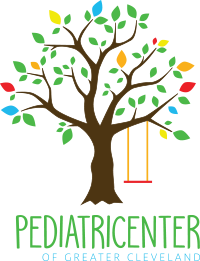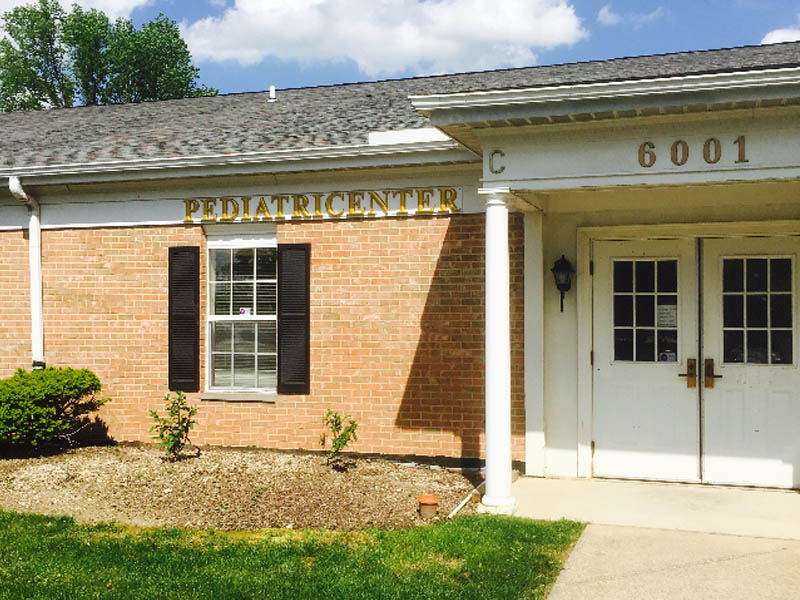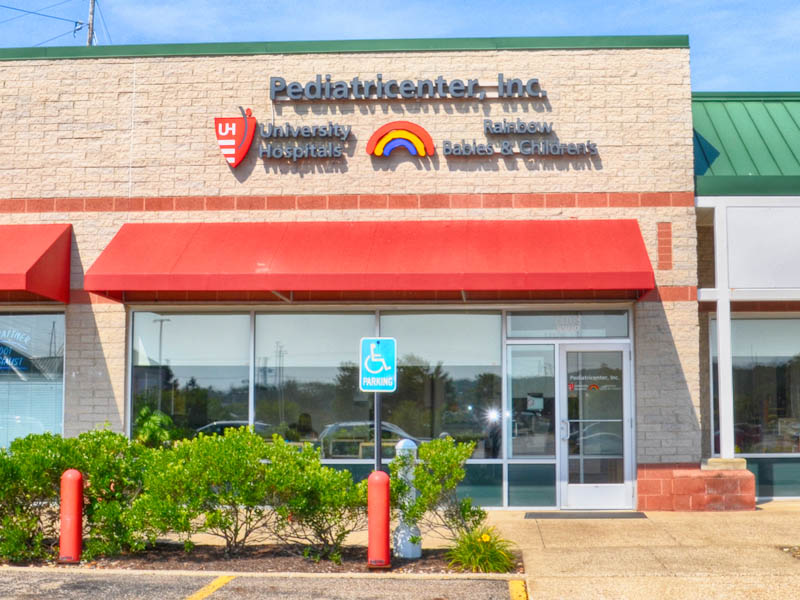Seasonal Updates
Influenza Vaccine
Pediatricenter is now happily offering the quadrivalent flu vaccine (protecting against 4 strains of influenza) this fall. The flu shot is recommended for almost every patient (with rare exceptions) 6 months of age and older. When it's the first time your child is getting a flu shot under the age of 8, he or she should receive two doses of the vaccine separated by at least 4 weeks (this includes patients receiving a flu vaccine for the first time the previous year who only received one dose).
The intranasal flu vaccine (FluMist) is NOT being recommended this year due to past ineffectiveness.
Here is the vaccine information sheet from the CDC for the injectable flu vaccine we are offering:
Inactivated Influenza (Flu) Vaccine
and please visit the CDC's website for information about signs and symptoms of influenza:
Children, Flu and the Flu Vaccine
Bronchiolitis
Bronchiolitis is a viral respiratory tract infection that affects infants and young children. It is most often caused by a virus called Respiratory Syncytial Virus (RSV) which affects the small airways, the bronchioles. These airways become swollen and filled with mucous, which makes breathing more difficult. Daycare and smoke exposure increase the risk of a child developing bronchiolitis.
Signs and symptoms of bronchiolitis include:
- Runny nose
- Nasal congestion/stuffy nose
- Cough
- Wheezing
- Fever
Bronchiolitis typically can last anywhere from 7-14 days. Often mild symptoms last for only a few days, but can be followed by worsening of cough and difficulty breathing. Fortunately, most cases of bronchiolitis are mild and can be treated at home, although some cases may get severe enough to require hospitalization. Since bronchiolitis is caused by a virus, antibiotics are not useful to help your child get better. Time and supportive care including a humidifier, suctioning out the nose prior to eating and sleeping, and keeping your child comfortable and hydrated are the most important things you can do.
Worrisome signs of more severe bronchiolitis include:
- Fast, shallow breathing
- Retractions - sinking in of skin above the clavicles, between the ribs and below the ribs when the child breathes in
- Flaring of the nostrils
- Signs of dehydration (few tears when crying, scant/no wet diapers, listlessness)
If you have any concerns about your child having bronchiolitis, please give our office a call.
Tips to Stay Healthy this Winter
Handwashing
One of the most important ways to keep you and your family healthy this winter is to get into the habit of regular handwashing. Handwashing with soap under warm water for at least 20 seconds helps remove germs, avoids your children from getting sick, and reduces the spread of germs to others. If water is not available, hand sanitizer with at least 60% alcohol content is a good alternative. It's important to teach your kids to wash their hands prior to handling food/eating, after coughing/sneezing/nose blowing, after using the bathroom, and when coming in the house from outdoors.
Stay home when contagious
Getting sick and being a child go hand-in-hand during the winter, and because illness is inevitable, you can't always keep your child home from school every time he or she is sick. Before sending your child back to daycare or school, it is important to keep your child home for the appropriate length time based on the following symptoms to prevent others from getting sick:
- Fever: Your child should be fever-free for 24 hours
- Pink eye: If it's bacterial pink eye, your child needs to have been on drops for at least 24 hours. If it's viral, you can send back on the same day.
- Vomiting: Your child should be kept home for 24 hours after the last episode of vomiting.
- Diarrhea: If your child is school-aged, make sure he or she can wash hands well after using the bathroom and is not going so frequently to be uncomfortable throughout the day. If your child is in daycare or preschool, the facility they go to may have a specific policy as to when your child may return.
- Strep throat: should have been on antibiotics for more than24 hours
- Ear infection: not contagious, ok to go back the same day
- Hand, Foot and Mouth disease: Again, if there is a fever, keep home for 24 hours. Once new lesions stop forming and all current lesions your child has are crusted over, it's ok to return to daycare/school.
- Pneumonia/wheezing: As long as your child can breathe comfortably, is not running a fever, and has been on antibiotics for more than 24 hours (pneumonia), he or she is ok to go back to school.
Cough/cold medicines
We know it’s hard to have kids sick with sniffles, sneezes and coughs, especially when it leads to fussiness and sleepless nights.As parents, we feel like we need to dosomethingto alleviate the symptoms.This often leads to one of the most common questions during a visit: “What can I do to help my child feel better?”
Common colds are usually caused by viruses, which are self-limiting (lasting 7 to 10 days on average).Kids get about six to eight colds per year, while adults, on average, get two to four colds per year.
Over-the-counter children’s cough and cold medicine isnot recommendedunder the age of six according to the American Academy of Pediatrics, mainly because of lack of effectiveness and potentially harmful side effects (hallucinations, abnormal heart rhythms, and altered levels of consciousness, among others).The danger of side effects is of particular concern when medicines are taken in too large of doses, which can happen because there are so many different preparations, often with combinations of drugs.
Multiple studies have shown the limitations and potentially harmful effects of over-the-counter cough and cold medications in children.One study from the Archives of Pediatric and Adolescent Medicine actually showed that parents rated honey assuperiorto dextromethorphan (a common ingredient in cough medicine) in relieving nighttime cough and sleep.
Most often, what works the best are the tried-and-true remedies of rest, plenty of fluids, and time.We also recommend Tylenol or ibuprofen for pain or fever, nasal saline drops or spray for congestion, and honey (over the age of one year) for cough.
Kids with a common cold still should generally be able to eat, drink, and play as they normally would.Allow yourself to read some extra stories and bend the screen time rules when the kids are sick and cranky.As always, if symptoms might suggest something more than a cold is going on - such as breathing harder or faster than normal, high fevers, or worsening fatigue – please call to schedule an appointment.
Head Lice
With winter weather now upon us, it is the time of year for hats. With the inclusion of hats comes the possibility of sharing hats, which can spread the all-too-common nuisance of head lice. While scary to think of, head lice are quite common and most often easy to treat.
Head lice affects mostly school aged children. Head lice (single: louse) are around the size of a sesame seed and are typically pale gray in color. They feed off of small amounts of blood from the scalp. Lice lay and attach their eggs, called nits (which are yellowish-white in color) close to the scalp. Once the eggs hatch, the empty nits stay on the hair shaft.
Head lice typically live for around 28 days and develop in 3 phases: egg or nit, nymph and louse. Eggs hatch after around 6-9 days. Nymphs looks like much smaller lice, around the size of a pinhead, and become adults around 7 days after hatching. An adult louse can multiply quickly after hatching, laying up to 10 eggs per day. It takes around 12-14 days from when an egg hatches to become an adult louse. Cycles repeat every 3 weeks if lice are left untreated.
The most common symptoms of head lice are itching, which happens once the scalp becomes sensitive to the lice saliva. The most common spots to itch are behind the ears and on the nape of the neck. Itching can last for weeks, even after the lice are gone.
The best way to check for lice and nits is in a well-lit room, and methodically checking the hair section by section. Nits can often be confused for dandruff. Nits are close the scalp and are firmly adhered to the hair shafts, while dandruff is not.
Treatment for head lice includes the following, but it is important to always check with your child’s doctor before beginning treatment:

It is also important to keep safety in mind when applying lice medications. These medicines should always be applied by an adult, used as directed, and not used in a child under 2 years of age without direction of a physician. Children should not be left alone with lice medication on their scalp. Products should be rinsed off over a sink, not in the tub or shower, to avoid contact with other parts of the skin. After treatment, the comb-out method is recommended to get rid of lice and nits. First, wet your child’s hair. Second, use a fine-toothed comb and comb through your child’s hair in small sections. Third, after each comb, wipe the comb off with a paper towel looking for any lice or nits. Repeat steps 1-3 until you have gone through all of your child’s hair.
There are still some schools that have a “No Nit” policy, stating that children who are affected with lice are not allowed in school until nit-free. The American Academy of Pediatrics and the National Association of School Nurses discourage such policies and state that head lice should not exclude a child from being able to participate in school.
As always, if any questions about head lice arise, please give our office a call.
Dressing for the weather/frostbite
While it's hard to think of this yet, the snow will be flying soon and temperatures will start to drop. Many kids wait for rides or buses before or after school, or walk to and from school, which can put them at risk. In the right conditions, frostbite can happen to exposed skin in a matter of minutes. Areas most prone to developing frostbite are the nose, cheeks, chin, fingers and toes.
Like burns, there are different degrees of frostbite, depending on how severe tissue damage is. Symptoms of frostbite include:
- Cold, numb skin - the skin may look white or gray and feel waxy or hard
- Trouble moving the affected areas
- Blisters with blood of fluid inside
- Areas of black skin - this is a sign of severe frostbite
Prevention includes always minimizing exposure to the elements when temperatures are low and the wind is high. Hats, face protection, mittens (as opposed to gloves), warm/water resistant shoes and several layers of loose fitting clothing with a wind-proof/water-proof coat are recommended. Wet clothing should be changed as quickly as possible, and skin should be warmed as soon as possible.
If you have concerns your child may have frostbite, please call our office.
Get your influenza and pertussis (Tdap) vaccines
This is especially important for expectant moms, as well as parents and siblings with a newborn in the house. Infants cannot get their pertussis vaccine until 6 weeks of age, and cannot get a flu vaccine until they are 6 months of age, so they rely on others getting vaccinated for protection.






